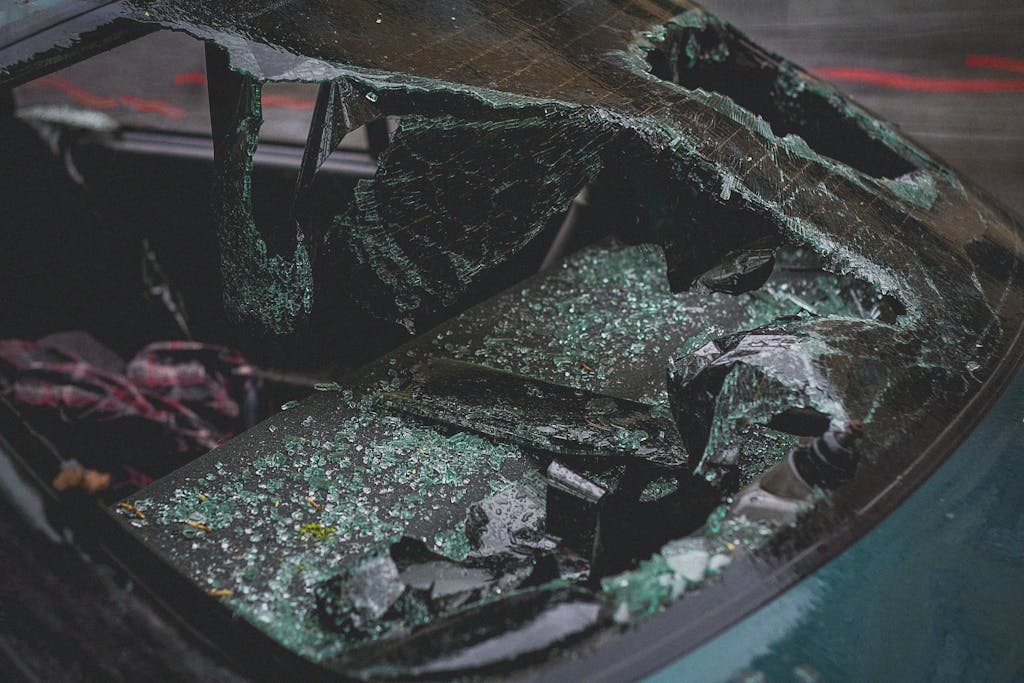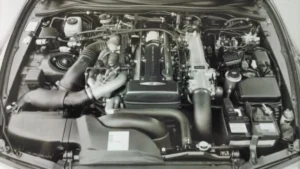Car Insurance in the UK: How Does it Work?

Buying an insurance policy is probably one of the most daunting bits of adulthood. Getting your first car and then immediately being burdened with the responsibility to insure it is enough to send anyone into a spiral. So if you’re young and just got a car without any knowledge about vehicle insurance, then you’ve reached the right place. In this article, we will cover a crucial aspect of car insurance: how does it work?
To begin with, car insurance is basically a policy where your monthly payments are put in a giant pot. Money from this pot is then used to cover the loss and damages of people who make a valid claim. However, as much as we wish it was that simple, it isn’t. So let’s begin the breakdown.
Types of Car Insurance
Before you head off to get a quote on your car, it would be wise to make yourself aware of the kinds of insurance coverages. Now, since the list of specialized ones is pretty exhausting, we will touch upon the three most widely-used ones.
Third Party Insurance: What Does It Cover?
Third-party coverage is the minimum legal requirement in the UK. This essentially covers any damage or injury that you might cause to other people, their vehicles, or property. Those opting for this coverage should also know that this does not cover the repair costs of your own vehicle if the accident was your fault.
Who is it for?
Third-party coverage is the most basic one and is highly suited for drivers who have old, less valuable cars where the cost of repairs might exceed its value. It’s also a good choice for those on a tight budget who want to meet legal requirements at the lowest possible cost.
Third-Party, Fire and Theft: What Does It Cover?
This policy essentially brings in all the benefits of third-party insurance with added protection against fire and theft. If your vehicle is stolen or damaged due to fire, this insurance will cover the costs. However, like the basic third-party coverage, this will also exclude repair costs for your own car if it’s your fault.
Who is it for?
This insurance is suitable for drivers who want some level of protection for their own vehicle but do not wish to pay for comprehensive coverage. It’s particularly fitting for those with moderately priced cars or for cars that are more likely to be stolen or are at risk of fire damage. It strikes a balance between cost and coverage, offering a little more security than just third-party alone.
Comprehensive Insurance: What Does It Cover?
Comprehensive insurance sits at the top with complete coverage of third-party and third-party, fire, and theft along with repair cost coverage for your own car as well.
Who is it for?
Comprehensive insurance is ideal for drivers of new or expensive cars as it covers damages to one’s own vehicle as well as third-party liabilities. It’s also recommended for those who cannot afford significant out-of-pocket expenses if their vehicle is damaged. Additionally, this type of insurance is beneficial for individuals who rely heavily on their vehicle daily, as it often includes cover for accidental damage, vandalism, and possibly a courtesy car during repairs.
Factors Affecting UK Car Insurance Costs
Car insurance prices are subjective and depend on a number of factors. Here are the most important ones:
Age and Driving Experience
Sad but true, younger drivers are burdened with higher premiums due to the perceived high risk and low experience. As the driver grows older, the risk goes down, making the premiums a lot easier on the pocket.
Vehicle Type and Grouping
There are 50 insurance groups in the UK. Each car model is carefully evaluated and allotted a group, with group 1 being the cheapest to insure and 50 being the most expensive. Key aspects that are considered include performance capabilities, repair costs, and the likelihood of theft.
Location
Location is yet another crucial factor. Insurance premiums will be higher for drivers living in areas with higher traffic density and higher crime rates. Meanwhile, cars parked in secure locations will invite a lower premium.
Occupation
Some professions are looked at as higher risk due to irregular working hours or the stress associated with the job. Insurers are very likely to charge higher premiums for the same.
Driving History and Claims Record
Insurers see drivers with a history of claims, traffic violations, or points on their driving licence as higher risks and hence charge them higher premiums. Conversely, a clean driving history can significantly reduce insurance costs.
Excess Amount
Excess is the amount a driver agrees to pay from his pocket towards the claim. A higher voluntary excess will significantly reduce the premium. However, this also means paying more from your pocket in the event of a mishap.
No Claims Bonus
If you have showcased unproblematic driving, a no claims bonus (NCB) is a great way to save some money with discounts. Over time, this bonus keeps increasing as you achieve another claim-less year.
The discounts provided by a no claims bonus can be substantial. Typically, insurers may offer a discount that increases for each year without a claim, up to a certain limit—often around five years. After five claim-free years, discounts of up to 30% to 50% on premiums are not uncommon, making it a valuable feature for cost-conscious drivers.
Protection of No Claims Bonus
Many insurers offer the option to “protect” a no claims bonus. This protection allows drivers to make a limited number of claims without affecting their accumulated bonus. While this protection can increase the policy cost slightly, it can be beneficial for preserving long-term discounts even if an accident occurs.
Car Insurance Law: Consequences of Uninsured Driving
The penalties for driving without insurance are severe. If caught, you can face a fixed penalty of £300 and six penalty points on your driving licence. If the case goes to court, you could face an unlimited fine and be disqualified from driving. The vehicle could also be seized and destroyed.
Can You Get Car Insurance Without a Licence?
Obtaining car insurance without a driver’s licence in the UK is quite a challenge, but not impossible. There are specific situations where this might be needed. For instance, if the owner/s of the car doesn’t drive anymore, they can insure it for other drivers like family members or hired drivers.
In such cases, you are looking at higher premiums due to increased perceived risk. Make sure you consult directly with insurance providers to explore options, ensuring full disclosure of all relevant details.
Summary
Navigating car insurance in the UK can be daunting, especially for new drivers. This guide explains how car insurance works, detailing the three main types: third-party, third-party fire and theft, and comprehensive coverage. It also covers factors affecting insurance costs, such as age, vehicle type, location, occupation, and driving history. The importance of a no claims bonus and the consequences of uninsured driving are highlighted. Additionally, it addresses the possibility of getting car insurance without a license. Understanding these elements can help you make informed decisions and find the right coverage for your needs.







1 thought on “Car Insurance in the UK: How Does it Work?”